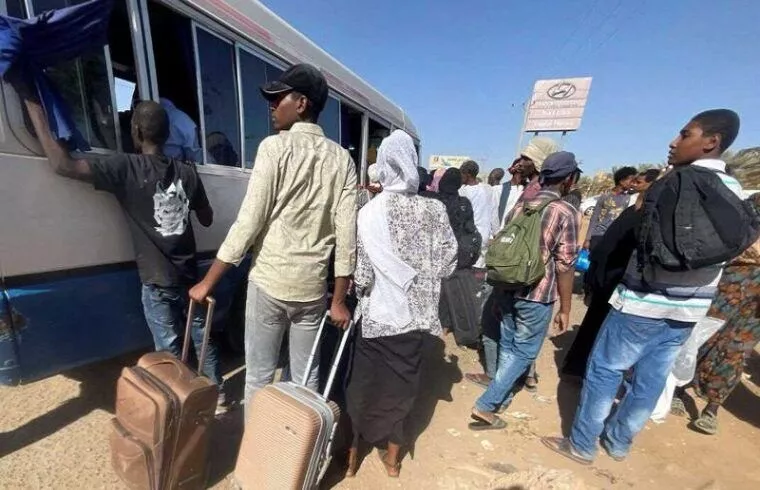The third Sudan ceasefire fails as many people flee
During the
fighting on Tuesday, which shattered a fresh three-day truce arranged by the
United States and Saudi Arabia, Sudanese and foreigners alike fled the capital
city of Khartoum and other war zones in large numbers. Since the fighting
between forces loyal to the country’s top two generals began on April 15,
millions of Sudanese have been forced to take shelter inside their houses.
As tens of
thousands of heavily armed combatants from the military and its adversary, the
Rapid Support Forces, fight it out in densely populated residential areas,
everyday life has come to a complete halt for the civilian population. The
Associated Press was able to obtain video showing the empty streets of Khartoum
and smoke rising above the city’s horizon.
Since the
beginning of the battle, more than 420 people have been killed, including at
least 273 civilians, and more than 3,700 people have been wounded.
Even though
it would appear that the military is gaining the upper hand in the combat in
Khartoum, the RSF is still in possession of numerous districts in both the
capital city of Khartoum and the neighboring city of Omdurman, in addition to
many huge strongholds located all over the country.
Since April 15,
hostilities between forces loyal to the country’s two senior generals have been
ongoing, with
only brief lulls in the combat brought about by a series of brief cease-fires
that have taken place throughout the previous week. These cease-fires have
either been completely unsuccessful or have brought about only sporadic lulls
in the fighting. The lulls in the fighting have been sufficient to allow for
the dramatic evacuation of hundreds of foreign nationals by air and land, which
continued on Tuesday.
But they
have not been able to provide any respite to the millions of Sudanese people
who have been caught in the crossfire. These people are fighting to obtain
food, shelter, and medical care while explosions, gunfire, and looters wreak
havoc on their neighborhoods. In a nation with a population of 46 million
people, various humanitarian aid organizations have been forced to cease their
operations, and dozens of hospitals have been forced to close their doors as a
result.
The United
Nations High Commissioner for Refugees (UNHCR) has stated that preparations are
being made for the possibility of tens of thousands of refugees migrating into
neighboring nations. There has been a deafening silence in response to calls
for dialogue to bring an end to the crisis in the third-largest nation in
Africa.
The
departure of diplomats, relief workers, and other foreigners, as well as the
closing of embassies, are ominous indicators, in the eyes of many Sudanese,
that international powers expect the mayhem to get worse.




Comments
Post a Comment